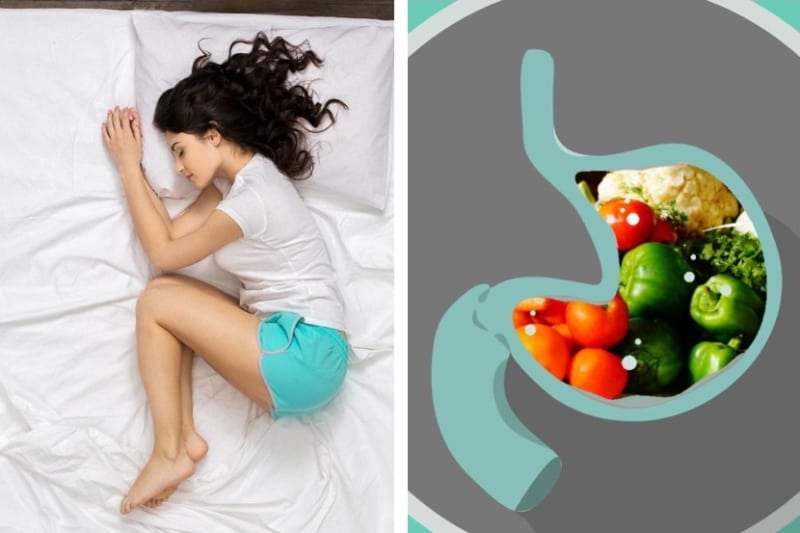

If your main mission is getting some quality shut-eye, you might be taking melatonin supplements or perhaps considering trying them out. As a result, you may be concerned about any adverse health effects that they may have, such as whether a melatonin overdose is possible.
In this article, we’ll cover everything you need to know about this substance, including melatonin dosage, functions and any precautions you may need to keep in mind. We’ll also discuss alternative measures that you could take in order to get the best sleep possible and regulate any sleeping problems that you may be experiencing.
Melatonin is a hormone that is produced naturally in the brain, with its primary function being regulating sleep-wake cycles. It is produced by the pineal gland when visual receptors detect that it’s dark, and the brain, therefore, gets a signal that it’s time for sleep.
Although it is a natural component of the body’s biochemistry, it can also be found in external sources, such as in food products (including the likes of pomegranates, cucumbers, rice, and walnuts) and in the form of supplements. The full impact of melatonin on the human body is not very well known yet, but apart from managing your sleep cycles, it also plays a role in the immune system, and even in regulating your metabolism.
These secondary roles of melatonin in the body are not that well-researched as of yet, but what is clear is that it is a crucial component of sleep-wake cycles. Therefore, the key reason that people take melatonin supplements is to treat various sleep disorders, which include the following:
Other notable cases when melatonin can be useful include regulating the sleep cycles of children with autism and helping blind people to form the correct day/night cycles.
Melatonin can be taken by both children and adults. There is a lot of debate about its effectivity, but studies have shown that it does help in treating sleep disorders for individuals who have been found to have low levels of the hormone in their body.

In short: no. Whilst you cannot die from a melatonin overdose, taking too much melatonin does have a small range of adverse effects that you do need to be aware of.
Melatonin supplements are sold in doses of 1, 3, 5 and 10 mg. It’s best to start with a smaller dose, such as 0.5 mg, and monitor how your body reacts before trying a higher dosage. In general, though, the dosage is highly dependent on the type of sleep disorder you’re looking to treat, as well as your unique biological characteristics.
Although you do not need to a prescription for melatonin, it’s still best to consult with your doctor regarding the optimum dosage of this supplement and discuss any potential individual side-effects that you might experience. Your doctor will be more aware of your medical background (and will have a better understanding of other medications that you’re taking, which could interact negatively with the hormone) and therefore give you much more personalized recommendations.
The most notable symptoms of a melatonin overdose include the following:
It may also cause short-term and unpronounced psychological side effects, such as mild anxiety, depression, disorientation, and irritability. You may also experience unusual dreams or nightmares. If you notice these effects after taking melatonin, it’s best to lower the dosage or stop taking the supplement altogether and talk to your doctor.
Studies have shown that melatonin reacts with other substances. So although you might not be able to overdose on melatonin in a way that will cause very severe side effects, taking it in conjunction with the following substances can pose higher health risks:
Melatonin alone results in feeling sleepy and drowsy – if taken with sedatives such as anti-anxiety drugs (the likes of clonazepam, lorazepam) or other CNS depressants, it can cause feelings of extreme drowsiness.
Birth control pills have been found to increase the levels of melatonin in the body, and taking BC and melatonin simultaneously could result in an overly high concentration of the hormone in the body. This can increase the likelihood and severity of the side effects mentioned above.
Although this is an area of some debate, some findings suggest that melatonin may slow the blood clotting process. As anticoagulants have the same effect, the two combined may result in increased bleeding
Yep, no more tea and coffee (in either case, in smaller amounts) – although once again, the evidence on this is not all that clear. The general consensus so far is that caffeine probably reduces melatonin levels, resulting in a decreased effectivity of the supplement and therefore causing some users to take increasingly higher doses in order to notice an effect.
There are many alternative therapies for sleep disorders, and many of them perhaps even more effective than taking melatonin supplements.
If you have trouble sleeping, try some alternative remedies: get into the habit of winding down and relaxing before bed. This is highly individual, but the most common tried and tested methods include meditation, drinking some herbal tea (consult with your doctor) or reading a book. Avoid phones, computers, and tablets, as the blue light that’s projected by the screen interferes with the body’s natural circadian rhythms and disrupts your sleep/wake cycles, meaning you may well be tired and ready for sleep – but your body isn’t.
Make sure that your sleeping area is the most comfortable and sleep-encouraging that it can be. Sometimes, all it takes is kitting out your bedroom with the best products for sleep that you can find: perhaps a body pillow is what you need, or if you sleep on your stomach, the perfect pillow for stomach sleepers? If your back aches and you and struggle to get a good night’s sleep, finding one of the best mattress toppers for combatting back pain is essential, and it would be a wise idea to consider getting an orthopedic pillow, too. Small changes, but they can make a world of difference to the quality of your sleep, eliminating the need for sleep aids in the form of pills. Furthermore, by improving the quality of your sleep, you’ll be improving your overall health and, by extension, your quality of life!
Be cautious when taking melatonin. Although there doesn’t seem to be a huge risk with taking it (on the contrary, it’s efficacy is highly debated), until its function hasn’t been studied comprehensively, it’s best to consult your doctor rather than practice self-medication. You cannot overdose on melatonin, but you may get some unpleasant side-effects. Either way, unless taking melatonin is not an absolute necessity, it’s a better idea to consider other ways you can help yourself to sleep better, rather than taking something synthetically-crafted – your body will thank you for it!
Sleep well!





